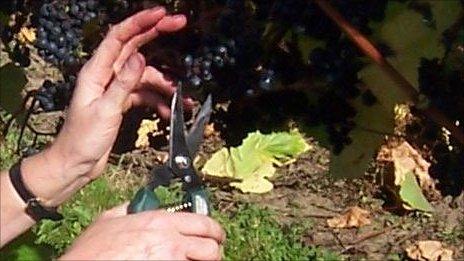Climate change making it harder to produce wine, says vineyard
- Published
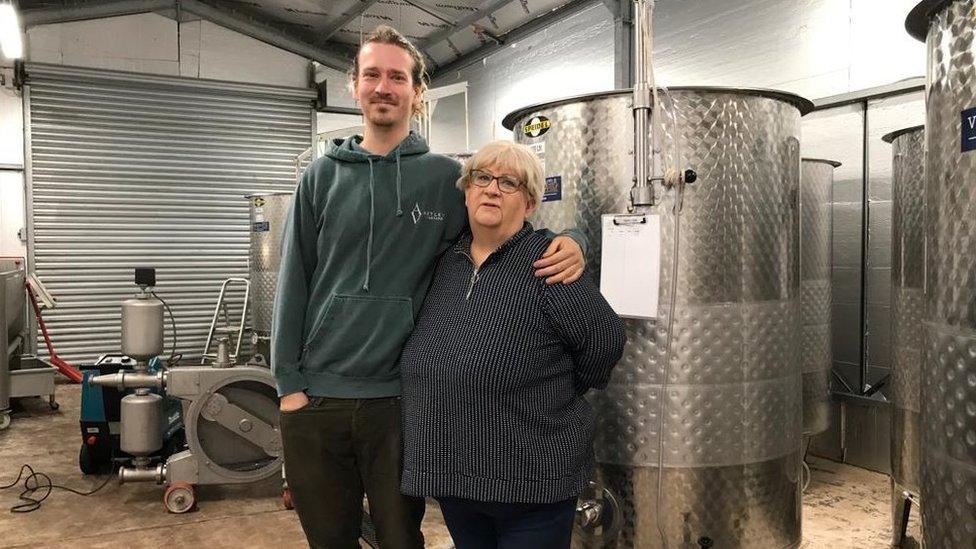
Son and mum Chris and Bev Haywood run the vineyard which was planted in 1971
A vineyard in Worcestershire has said climate change has made it more difficult to produce wine.
The first grapes at Astley Vineyard in Stourport-on-Severn were planted in 1971.
Owner Bev Haywood said there had since been an increase in unpredictable weather, making it harder to ripen grapes and consistently create the same wine flavours.
"We're on the extremes of grape growing up here in Worcestershire," she said.
The Haywood family moved there six years ago and grows grapes on a single five-acre plot, producing 10,000 or fewer bottles of wine a year.
Ms Haywood's son, Chris Haywood, said when there was more rain it increased the likelihood of diseases.
It also diluted grapes so wine had less flavour, he added.
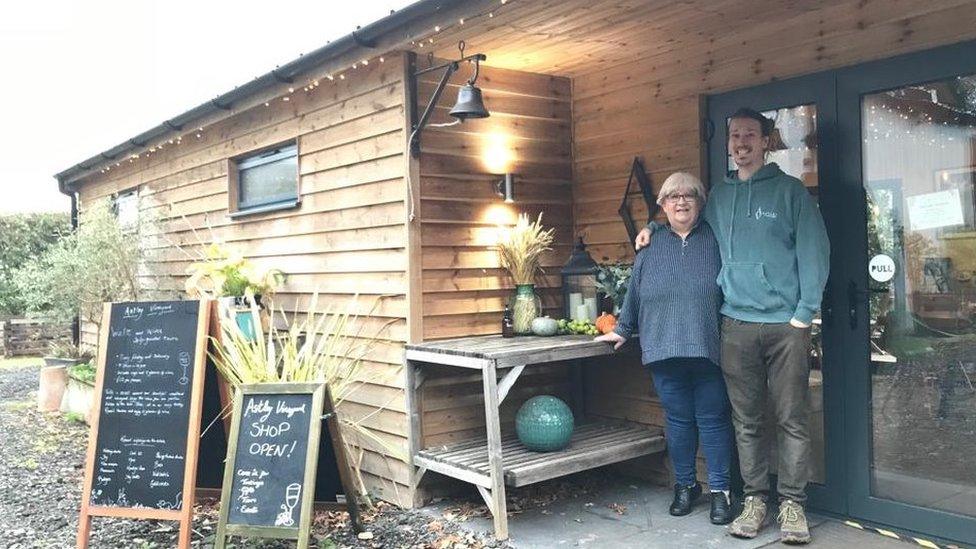
Astley Vineyard runs a shop which sells the wine they create
"This year there has been an increase in diseases so there has been a smaller yield," he said.
"Also, [when flavour changes], we have to charge a bit less as the wine isn't as exciting as other years."
Mr Haywood said he wanted the conversation around English wine to continue so people knew why the flavours changed year to year.
'Always on our toes'
"All farming is on edge, we fight for every year... always on our toes and at the mercy of the weather," he explained.
He said the vineyard did well with tourism and hoped to open up onsite accommodation to help offset losses.
Extreme weather has become more frequent and intense due to the average global temperature increasing by 1.1C.
Scientists say limiting temperature rises to 1.5C is crucial to avoid the most dangerous impacts of climate change.

Follow BBC West Midlands on Facebook, external, X, external and Instagram, external. Send your story ideas to: newsonline.westmidlands@bbc.co.uk, external
Related topics
- Published22 October 2023
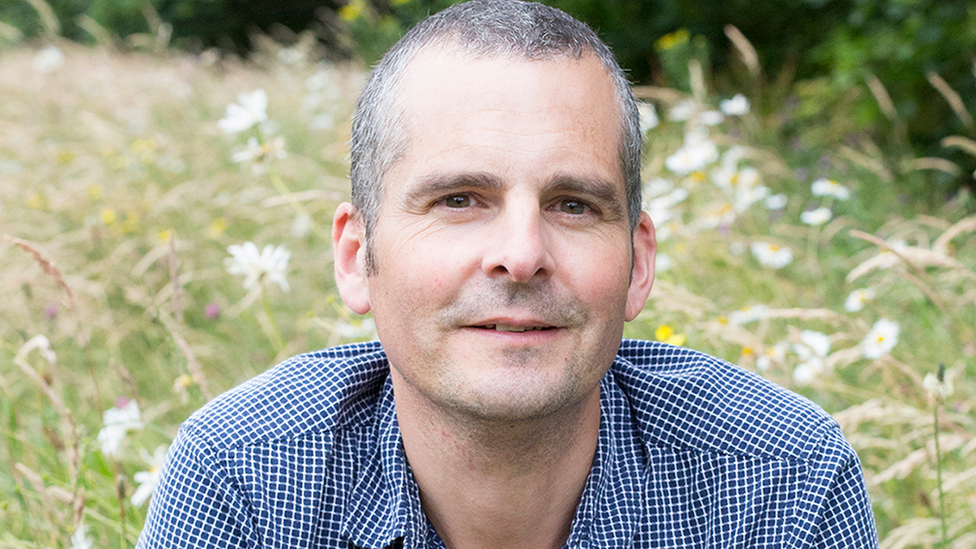
- Published24 August 2023
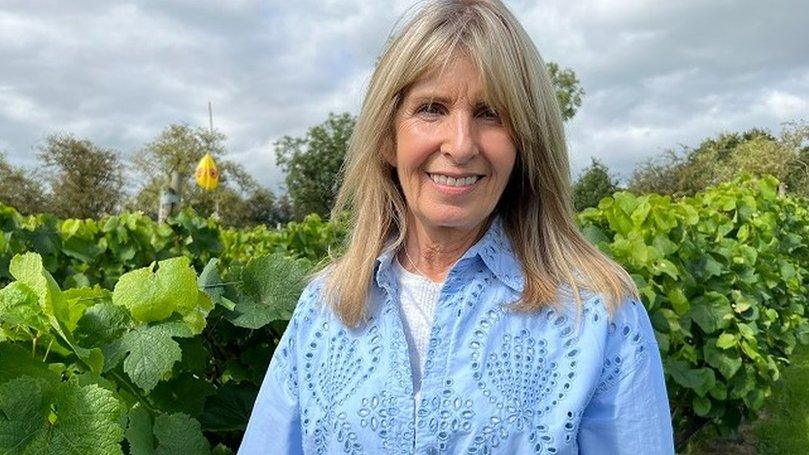
- Published29 September 2011
